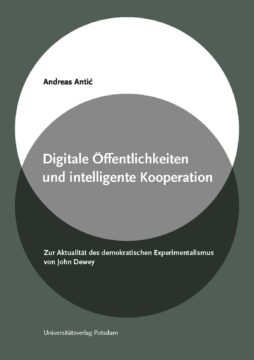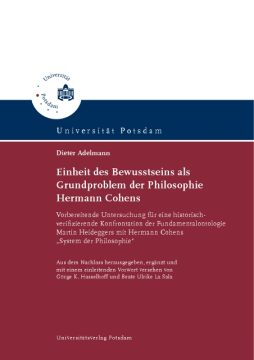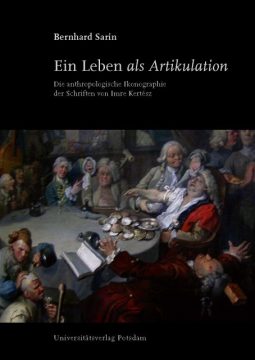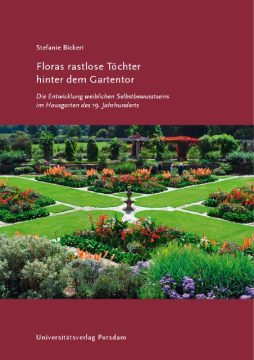This work deals with a particular relativistic objection on Gadamer’s hermeneutic philosophy of language, according to which the position of language has such a prior status so that human experience is solely dependent on the language people speak. That is a reductionist approach to Gadamer’s hermeneutic, which ascribes language an exclusively explanatory and foundational status. I am taking this objection to a close examination and develop a double argumentation line: On the one side I show how the concept of world experience is language determined, and on the other side how the language itself is determined by our experience of the world. In order to argue for this interdependence, I first examined the positive and negative structure of experience, some phenomenological and transcendental features and offered a short historical background of ties to selected philosophical heritage. In the second part of the work I developed a concept of language that argues for its dialogical and not absolutely transsubjective character, also for its world-disclosing alongside its communicative and representational dimension. Gadamer’s hermeneutic philosophy of language, belonging to the continental philosophy or HHH Theories represents an antireductionist approach to language after the linguistic turn, which is often criticized for a linguistic reductionism and relativism.
eine antireduktionistische Lesart gegen Relativismusvorwürfe
ISBN: 978-3-86956-176-9
358 pages
Release year 2013
14,00 €
Non-taxable transaction according to § 1 (1) UStG/VAT Act in combination with § 2 (3) UStG/VAT Act a. F. Providing this service, the University of Potsdam does not constitute a Betrieb gewerblicher Art/Commercial Institution according to § 1 (1) No. 6 or § 4 KStG/Corporate Tax Act. If the legal characterization of our business is changed to a commercial institution subsequently, we reserve the right to invoice VAT additionally. zzgl. Versandkosten
This work deals with a particular relativistic objection on Gadamer’s hermeneutic philosophy of language, according to which the position of language has such a prior status so that human experience is solely dependent on the language people speak. That is a reductionist approach to Gadamer’s hermeneutic, which ascribes language an exclusively explanatory and foundational status. I am taking this objection to a close examination and develop a double argumentation line: On the one side I show how the concept of world experience is language determined, and on the other side how the language itself is determined by our experience of the world. In order to argue for this interdependence, I first examined the positive and negative structure of experience, some phenomenological and transcendental features and offered a short historical background of ties to selected philosophical heritage. In the second part of the work I developed a concept of language that argues for its dialogical and not absolutely transsubjective character, also for its world-disclosing alongside its communicative and representational dimension. Gadamer’s hermeneutic philosophy of language, belonging to the continental philosophy or HHH Theories represents an antireductionist approach to language after the linguistic turn, which is often criticized for a linguistic reductionism and relativism.
Recommended Books
-
 2018
2018Digitale Öffentlichkeiten und intelligente Kooperation
17,50 €Non-taxable transaction according to § 1 (1) UStG/VAT Act in combination with § 2 (3) UStG/VAT Act a. F. Providing this service, the University of Potsdam does not constitute a Betrieb gewerblicher Art/Commercial Institution according to § 1 (1) No. 6 or § 4 KStG/Corporate Tax Act. If the legal characterization of our business is changed to a commercial institution subsequently, we reserve the right to invoice VAT additionally.
zzgl. Versandkosten
Add to cart -
 2012
2012Dieter Adelmann, Beate Ulrike LaSala, Görge K. Hasselhoff
Einheit des Bewusstseins als Grundproblem der Philosophie Hermann Cohens
15,50 €Non-taxable transaction according to § 1 (1) UStG/VAT Act in combination with § 2 (3) UStG/VAT Act a. F. Providing this service, the University of Potsdam does not constitute a Betrieb gewerblicher Art/Commercial Institution according to § 1 (1) No. 6 or § 4 KStG/Corporate Tax Act. If the legal characterization of our business is changed to a commercial institution subsequently, we reserve the right to invoice VAT additionally.
zzgl. Versandkosten
Add to cart -
 2010
2010Ein Leben als Artikulation
20,50 €Non-taxable transaction according to § 1 (1) UStG/VAT Act in combination with § 2 (3) UStG/VAT Act a. F. Providing this service, the University of Potsdam does not constitute a Betrieb gewerblicher Art/Commercial Institution according to § 1 (1) No. 6 or § 4 KStG/Corporate Tax Act. If the legal characterization of our business is changed to a commercial institution subsequently, we reserve the right to invoice VAT additionally.
zzgl. Versandkosten
Add to cart -
 2013
2013Floras rastlose Töchter hinter dem Gartentor
9,00 €Non-taxable transaction according to § 1 (1) UStG/VAT Act in combination with § 2 (3) UStG/VAT Act a. F. Providing this service, the University of Potsdam does not constitute a Betrieb gewerblicher Art/Commercial Institution according to § 1 (1) No. 6 or § 4 KStG/Corporate Tax Act. If the legal characterization of our business is changed to a commercial institution subsequently, we reserve the right to invoice VAT additionally.
zzgl. Versandkosten
Add to cart
Publisher Info
Contact
Potsdam University Library
University Press
Am Neuen Palais 10
14476 Potsdam
Germany
verlag@uni-potsdam.de
0331 977-2094
0331 977-2292





